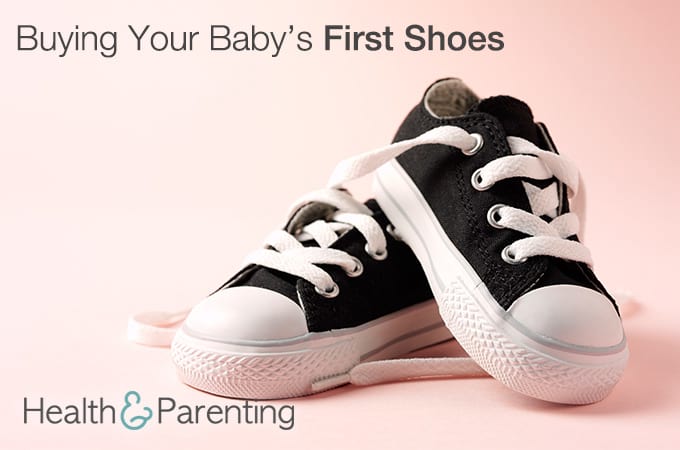Your baby’s feet will grow a lot during the first three years of life. They’re probably already much bigger than those tiny, soft feet you couldn’t stop stroking when she was newborn. A foot contains 26 bones though your baby’s feet will comprise of cartilage until they harden into bones by adulthood. Feet absorb shock as we run, walk and jump. A toddler’s feet need to be able to absorb more shock simply because toddlers are much more active than adults.
You’ve probably been desperate to buy a cute little pair of Mary Janes ever since your baby was born, but you won’t need to buy your baby’s first shoes until she has mastered walking. Barefoot is best for babies who are crawling and learning how to walk. Staying barefoot is best for the development of the bones in your baby’s feet. When possible, you should leave your child barefoot as long as possible throughout the day. There will be times, however, when cold weather or outdoor play mean your little one needs a pair of shoes.
Fitted pre-walkers are a great place to start. These shoes are flexible, allowing your baby’s feet to develop as naturally as possible. Shock absorbant soles will help to protect your baby’s feet from the toddling, jumping and falling your baby does each day.
When should I buy my baby’s first pair of shoes?
Once your baby is a confident walker, it’s time to invest in a decent pair of shoes. It’s important that the shoes fit properly as this will aid natural development of your baby’s foot structure. Take your child to a shop store where a qualified assistant will be able to measure your child’s feet and advise you on the best shoes to buy. You may want to consider the following when choosing your baby’s first shoes:
- the sole – the sole should be flexible to allow good movement. You may also want to choose shoes with good grips to reduce the risk of falling.
- the material – plastic shoes may increase sweating, so you may prefer to choose canvas, cotton or leather shoes for your baby.
You’ll need to take your baby to have her feet measured at least every two months for the next few years. Babies feet grow fast and improperly fitting shoes can affect how your baby’s feet develop. New shoes aren’t cheap, but your baby’s growth will slow down a bit by the time she is four years old. Avoid secondhand shoes, these may already be moulded to the feet of the previous owner and could affect the development of your own baby’s feet.
Is your baby ready for her first shoes yet?
Written by Fiona (@Fiona_Peacock), mother, writer and lover of all things baby related.
This information is not intended to replace the advice of a trained medical doctor. Health & Parenting Ltd disclaims any liability for the decisions you make based on this information, which is provided to you on a general information basis only and not as a substitute for personalized medical advice. All contents copyright © Health & Parenting Ltd 2016. All rights reserved.










